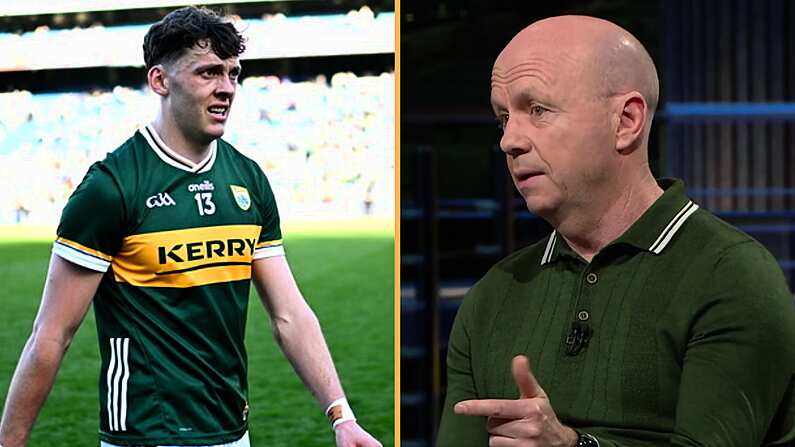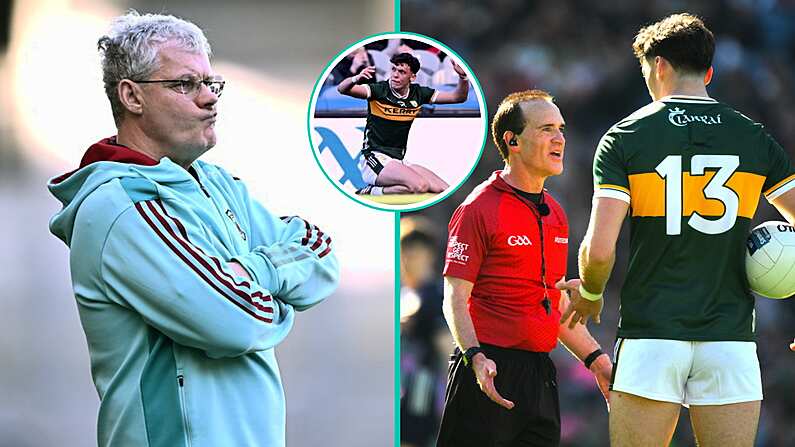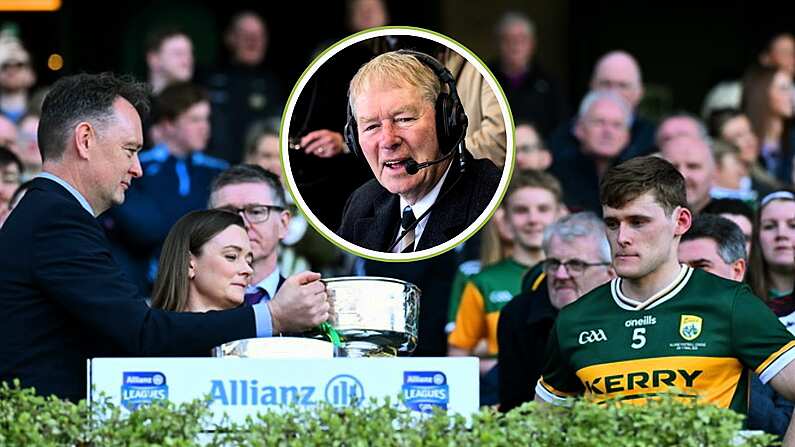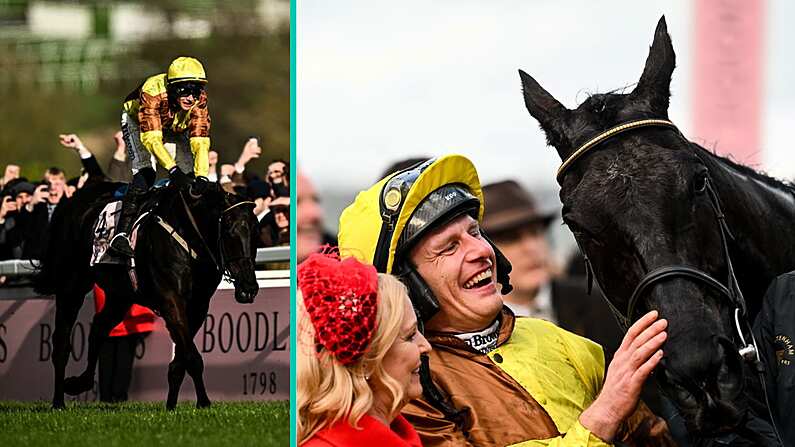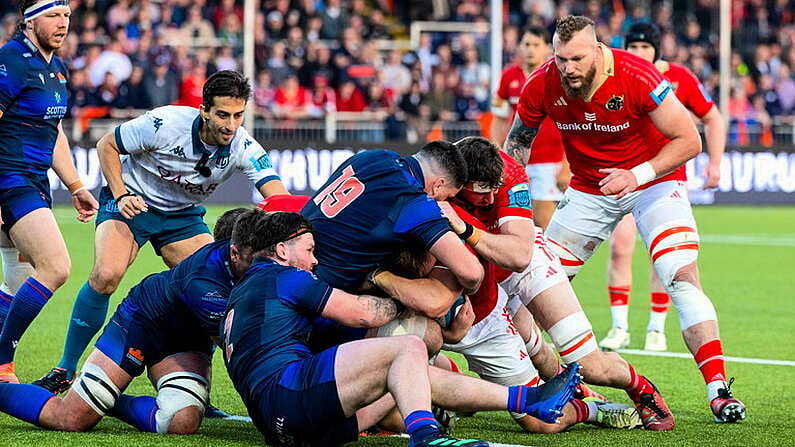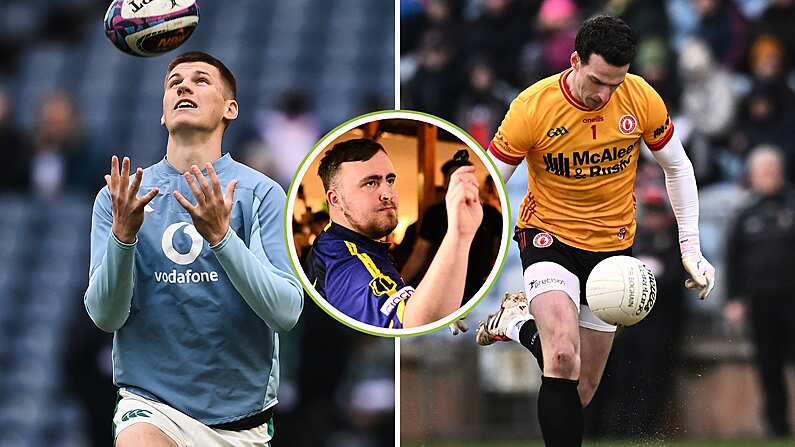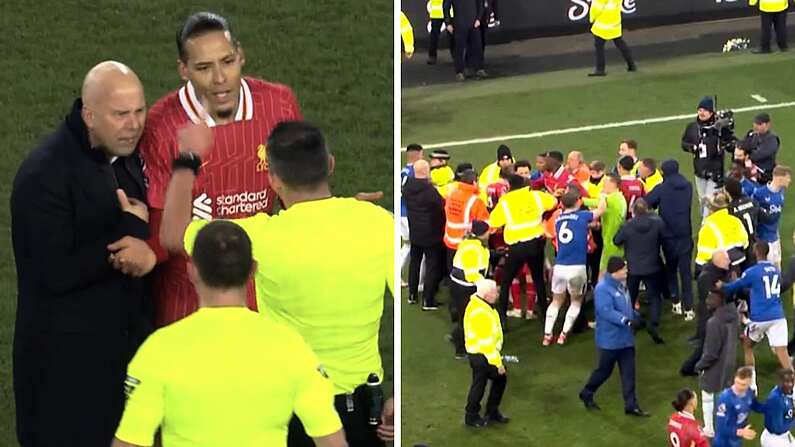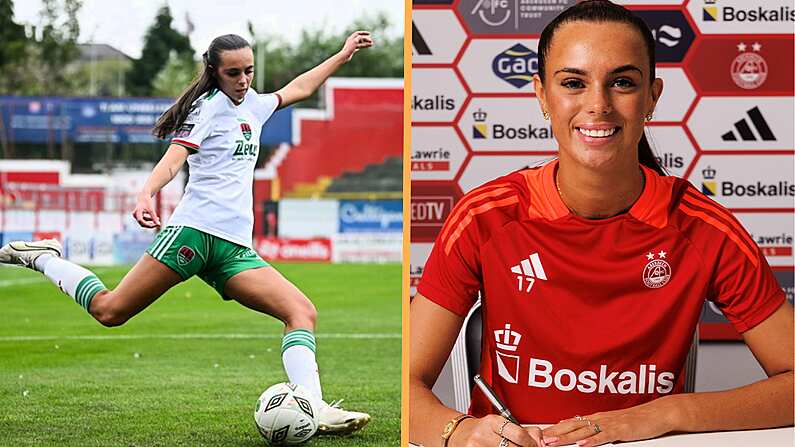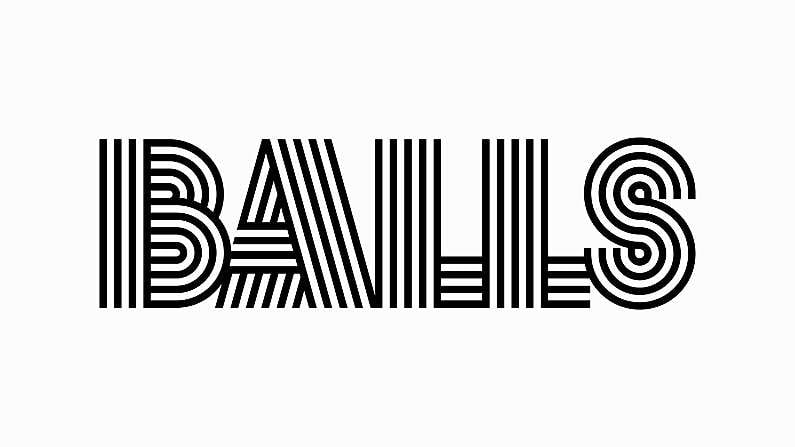A wild imagination is a basic requirement of any Irish person. The 'What if...' is naturally not unique to sport. Modern existence will generate pivotal moments that we instinctively pour over in hindsight and ponder the alternatives. However, it is never as enjoyable as it is with sport. What if those familiar, essential memories had a different ending? Just what would that world look like?
The mind's ability to overlook the absolute fact that sport, like life, cannot be boiled down to one standout moment is a strange and curious thing. Nevertheless, some incidents do have greater significance than others. With that in mind, here are the greatest what-ifs of Irish sport, part 2.
What if Seamus Darby's goal was a free-out?
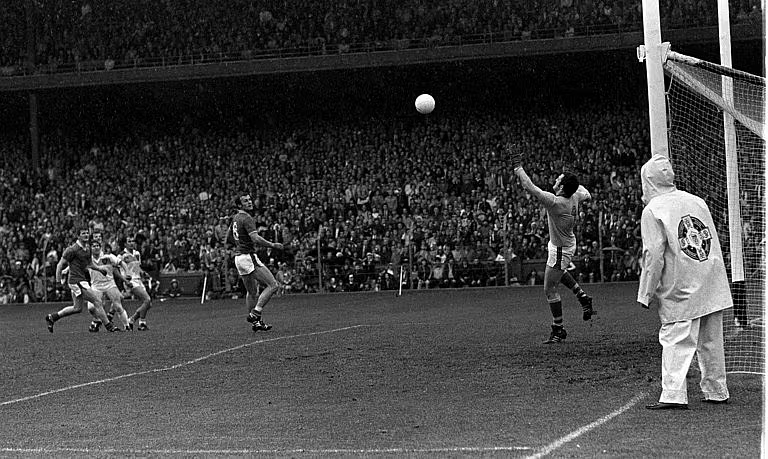
Croke Park's most famous goal and Offaly's greatest moment. In 1982 Offaly played and were victorious in one of Gaelic football's best finals. As the late Kevin Farrell detailed in his memoir, Seamus Darby should not have even been on the field. An extraordinary performance for Rhode in the Offaly championship was enough to earn his inclusion for the Leinster final. A hamstring injury threatened his participation against Kerry but finally, late in the game Darby got the nod and was brought in for John Guinan. The rest is history. But what if, as many a Kerryman has fervently argued, a free out was awarded for the alleged push in the back?
Alternative:
The alternative is obvious. Kerry would undoubtedly have secured their five in a row and the likelihood is they would still have done the treble 1984-86. The consequence of that goal and indeed of the 'what if' phenonium, was perfectly illustrated by Mick O'Dwyer who recently outlined the effect that game had when speaking during his documentary:
For two months after, I never left Waterville. I stayed in the house, put the tape (of the game) on, had a look at it and just saying to myself, ‘Pity we didn’t do this, pity we didn’t do that’. It’s like a death in the family, if that’s possible. I think of it at least once a week. It would still be implanted in my mind.
What if Katie Taylor didn't lose in 2016?

There are few moments in Irish sport where words are totally redundant. However, the images of Katie Taylor's in the immediate aftermath of her shock Rio Olympics loss against a 35-year-old, Mira Potkonen, who only started boxing at 26, tragically encapsulate the crossroads facing her at that moment.
It came shortly after her world championships loss against Estelle Mossely and suddenly we were left to ponder Taylor's future. Yet, in hindsight, it could may actually have been for the better.
Alternative:
In the aftermath of that bout, Taylor sought out skilled boxing coach Ross Enamait, signed a professional contract with Matchroom Boxing and made her debut at London’s Wembley Arena. What looked like an epic amateur career now looks destined for an unprecedented professional one as Taylor has her eyes set firmly on unifying four belts.
What if Paul O'Connell didn't get injured in 2015?

An extraordinary moment for Irish rugby fans. There was collective disbelief when the nation's Superman proved mortal and was reduced to a desperate slump, requiring oxygen for a hamstring injury that would ultimately end his career. Ireland went on to win that game but O'Connell's injury was indicative of a wider injury problem and a weakened Ireland bowed out against Argentina in the semi-final.
Alternative:
There is certainly a case to be made that the 2015 quarter-final loss against Argentina was Irish rugby's greatest wake-up call. It remains the lowest moment of Joe Schmidt's tenure and is something he regularly references. Immediate steps were made to fully utilise the golden generation at his disposal, while refocusing on squad depth and the scrum's ability. The crowning glory of that work was this year's Grand Slam victory.
What If Pádraig Harrington didn't win the 2007 British Open?

July 2007, Open Championship. Two dropped strokes on the 18th and suddenly Harrington found himself in a playoff. A finish that included a calamitous double bogey is often forgotten thanks to Sergio Garcia's bottle-job but Harrington fought back to leave himself with a three-footer for the win. Emotions evident, mind resolute, he sank it and became the first Irishman to win the British Open in 60 years.
Alternative:
It is often forgotten how crucial that victory was for Harrington. That was his major championship breakthrough and the road back was certainly a long one. It's hard to imagine the same confident Harrington turns up just three weeks later and wins the PGA Championship.
What if Setanta Ó hAilpín didn't go to Australia?

In 2003 Setanta joined his elder brother, Seán Óg, on a Cork team that came within three points of Kilkenny in the All-Ireland final. He was awarded Young Player of the Year and an All-Star. The rebels were dreaming a bright future when reports emerged that Ó hAilpín was considering joining AFL side Carlton in Australia. On the 28th of November, several reports were ran quoting Cork players rejecting the rumours. Four days later Calton announced their new Irish recruit.
Alternative:
It is hard to gauge the impact one player could have had. However, the addition of a talent like Ó hAilpín could well have been the extra percent Cork needed to secure a much-coveted three in a row, a dream ended in '06 thanks to a three-point loss to Kilkenny.
What if Ireland qualified for the World Cup under John Giles?

An era often dismissed as the wilderness years. On the 12 October 1977, the Republic of Ireland fell to a 0-0 draw with Bulgaria and missed out on the 1978 World Cup by two points. Having beaten France at home, it was a cruel blow for a young and upcoming side that marked the tipping point of Giles stint as Ireland boss.
Alternative:
There were two near misses prior to the Charlton era that generated the appetite for success that defined Irish football. One was 78'. The other was the goal difference that denied Eoin Hand's side qualifying for the 1982 World Cup. This was the background to Ireland's most successful period of their soccer history. If ever proving that the greatest successes follow the toughest failure.
In the spirit of these examples and part 1, we are encouraging you to get in touch with your suggestions for the greatest what ifs in Irish sport! Twitter, Facebook, or email thegaffer@balls.ie



